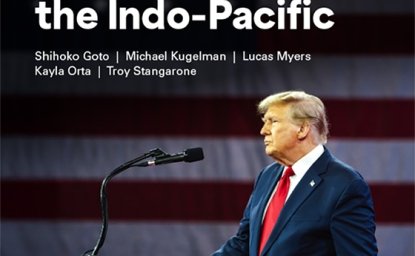"Mostly Propaganda in Nature:" Kim Il Sung, the Juche Ideology, and the Second Korean War






NKIDP Working Paper #3, “‘Mostly Propaganda in Nature:’ Kim Il Sung, the Juche Ideology, and the Second Korean War,” written by Mitchell Lerner (Ohio State University), chronicles the events of the “Second Korean War” from 1966 through 1969 and explores the internal circumstances and foreign policy of North Korea during this critical period.
Drawing upon newly obtained materials from the archives of North Korea’s former communist allies, Lerner argues that:
- The Juche ideology played an important role in North Korea’s policymaking during the Second Korean War;
- The behavior of the North Korean leadership during the Second Korean War period was primarily motivated by a desire to compensate for internal failures by generating external crises that would offset any potential threat to their control;
- Kim Il Sung's actions throughout the Second Korean War support the idea that his intention was to remind the North Korean people of the constant threat presented by the imperialist powers and of the necessity of the strong and dramatic actions he was taking in response;
- Due to the turmoil in Chinese-North Korean relations in the mid-1960s, North Korea stabilized relations with the Soviet Union, though the Soviet-North Korean alliance remained fraught with tension to a greater extent than has been generally recognized;
- Kim Il Sung appeared to have had a genuine commitment to the principles of Juche ideology while at the same time also used Juche to further his own political agenda and strengthen his personal dictatorship.
Appended to NKIDP Working Paper #3 are thirteen translated documents from Hungarian, (East) German, Czech, and Russian archives that allow scholars and students to gain greater insight into the causes of North Korean conduct during the Second Korean War in the late 1960s.
To download “’Mostly Propaganda in Nature:’ Kim Il Sung, the Juche Ideology, and the Second Korean War,” or to view the documents included in the article, please see the links below.
***
(click document title to be redirected to the Wilson Center Digital Archive)
DOCUMENT NO. 2
Letter from GDR Embassy in the DPRK to State Secretary Hegen December 12, 1966
DOCUMENT NO. 5
Letter from GDR Embassy in the DPRK to Secretary of State Hegen December 8, 1967
DOCUMENT NO. 6
Letter from GDR Embassy in the DPRK to Secretary of State Hegen December 22, 1967
DOCUMENT NO. 11
GDR Embassy Letter to State Secretary Hegen March 4, 1968
DOCUMENT NO. 12
"Military-Political Situation in the DPRK" June 4, 1968

The North Korea International Documentation Project serves as an informational clearinghouse on North Korea for the scholarly and policymaking communities, disseminating documents on the DPRK from its former communist allies that provide valuable insight into the actions and nature of the North Korean state. Read more


The Cold War International History Project supports the full and prompt release of historical materials by governments on all sides of the Cold War. Read more


A leader in making key foreign policy records accessible and fostering informed scholarship, analysis, and discussion on international affairs, past and present. Read more




